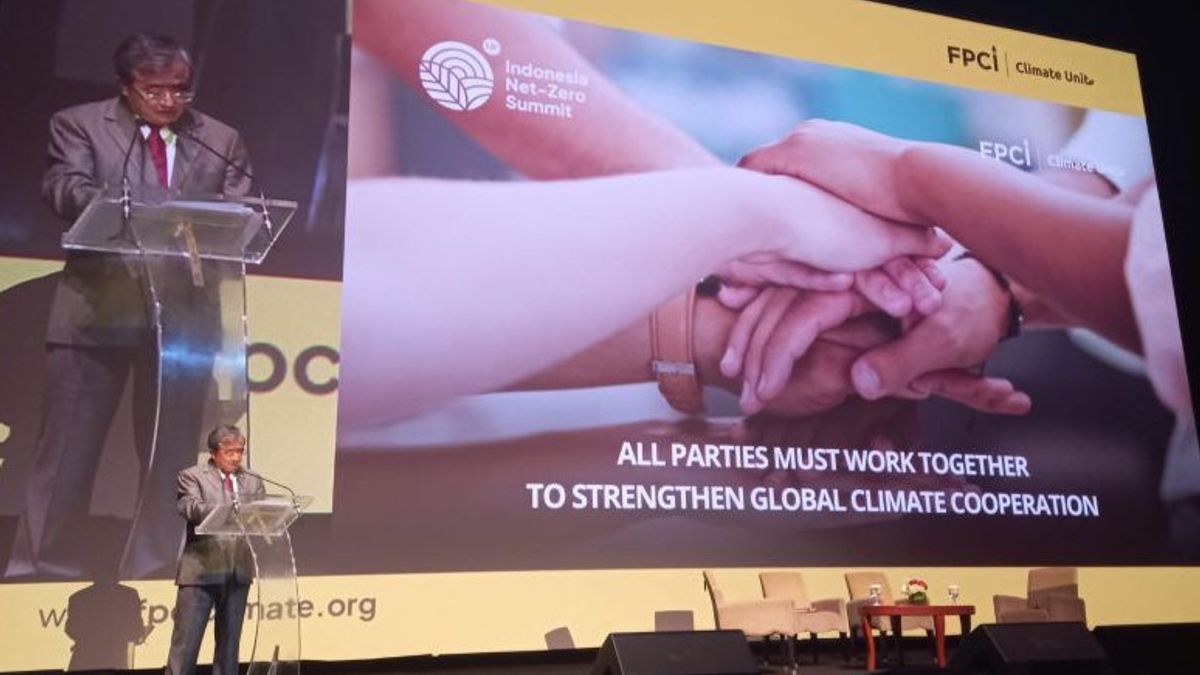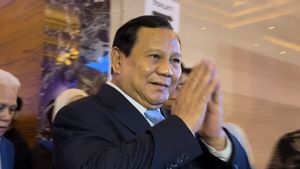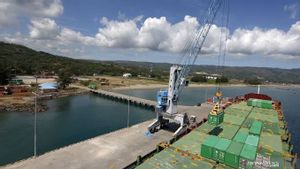JAKARTA - The importance of global carbon neutrality for the welfare and human environment is the main focus of the Chinese Climate Change Special Envoy Liu Zhenmin when speaking at the Indonesia Net-Zero Summit (INZS) 2024 SOS Hell Bocor: Climate Avengers Assemble! in Jakarta, Saturday.
"Achieving global carbon neutrality is not only important for the welfare of the current generation, but also for the living environment of our future generation," he said at an event organized by the Foreign Policy Community of Indonesia (FPCI), quoted from ANTARA, Saturday, August 24. Currently, many Asian countries are at a critical stage of energy transition and face various challenges such as increasing energy consumption, rising prices, low share of renewable energy capacity, and unstable supply chains," he said.
He provided three quick suggestions to achieve a balance between energy resilience and energy transition, which is a challenge facing Asian countries, especially developing countries.
First, Liu continued, is to uphold multilateralism.
"Climate change is a global issue that requires integrated cooperation between countries around the world," Liu said.
"All countries must comply with the United Nations Framework Convention on Climate Change (UNFCCC) and the Paris Agreement as a legal framework for international cooperation to tackle climate change," he said.
The second is to push for an energy transition evenly, orderly and fairly, continued the Chinese Climate Change Special Envoy.
"Adil, orderly, equal and cooperative are keywords for the global energy transition," Liu said.
SEE ALSO:
According to him, the energy transition must ensure energy security and must reflect flexibility, scientific capabilities and inclusiveness.
A fair and equivalent transition requires development that is in accordance with national conditions, the stages of development, capabilities, and resources owned by each country.
"Progressive countries must provide support to developing countries to help them reach a fair position," Liu said.
The third is to overcome obstacles through technology cooperation and to fill in gaps in global climate governance.
"Rebuilding trust between countries in the northern and southern hemisphere requires true international cooperation," Liu said.
Liu explained that currently, protectionism and unilateral measures from several countries pose significant obstacles to the low transition of global carbon.
"The international community must reject unilateralism and zero sum thinking (loss-win-ed.) which contributes to global climate governance through competitive competition and cooperation," concluded Liu
The English, Chinese, Japanese, Arabic, and French versions are automatically generated by the AI. So there may still be inaccuracies in translating, please always see Indonesian as our main language. (system supported by DigitalSiber.id)
















